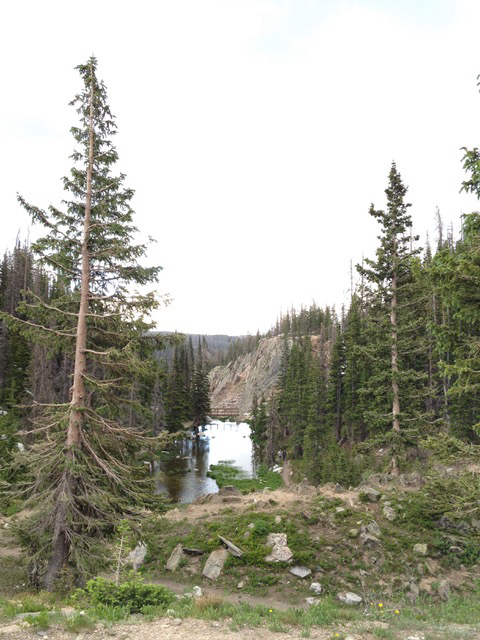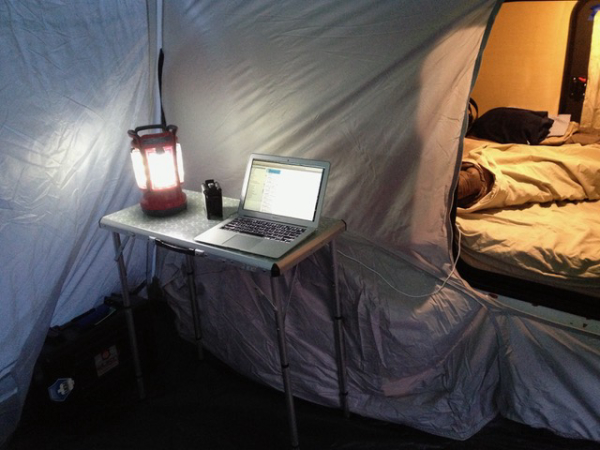Today's feature is from our parent service, The Outdoor Wire -- and it's vastly relevant to all our readers.
With all the uncertainty of today, I’ve had people asking me questions lately that seem more like quotes from dystopian fiction than legitimate questions.
“Do you have a bug-out bag?” Or “where is your rally point when/if SHTF happens?”
My personal favorite of late was “do you think 250 rounds of ammo for my rifle and 100 for my pistol are enough for my bug-out bag?”
Enough? For what, combat? I’m no soldier, but I know from experience that moving ammo in quantity -even .22 long rifle- gets weighty- fast.
Hunters don’t carry boxes of ammo, they carry rounds. Competition shooters know the round-count of a match and plan accordingly. Only the military hauls around crates of ammo -one ammo carriers.
Ammunition is great, but if you’re going to abandon ship and live off the land, you need to be concerned with some even more essential basics: water, shelter and food. Start toting around 2-3 gallons of water per person, and you’ll realize that your backpack, even without your load-out of ammo, will be far heavier than originally anticipated.
For surviving a hurricane, tornado or forest fire, running can sometimes be the only answer. Running loaded down with “stuff” isn’t an option that increases your chances.
Survivors will also share another piece of wisdom with you: if you set out to bug out, have a destination in mind. And think about what you’ll need to get by when you get there. Simply heading for the hills isn’t a solution, it’s a recipe for disaster.
One of the people asking about “bugging out” knows absolutely nothing about surviving in the outdoors. Never camped, doesn’t hunt, and is allergic to almost everything that produces pollen. Their knowledge curve isn’t steep, it’s absolutely vertical. They have next to no chance in a long-term scenario.
They’re a far cry from my neighbor the avid hunter, boater, hiker, camper and outdoorsman.
But when I asked him about “bugging out” he laughed at me.
“Why would I leave the comforts of home,” he laughed, “and take to the woods if there were any alternative? Here, I have everything to shelter-in-place. I don’t even want to consider surviving long-term in the woods. It’s tough out there.”
He’s right.

You’ve hiked there dozens of times. But can you hike it carrying a pack and all your supplies? Realistic destinations are essential in an emergency.
|
It’s one thing to pack up some MREs, a LifeStraw, canteen, mess kit and tent and think you’re good-to-go into the wild. For the weekend, you might be. But when the food runs out and water gets scarce, you’ll quickly realize that bugs, bad weather and the hard ground are with you for the long haul.
Honestly, most of us are prepared for long weekends, not long marches. It’s unrealistic to think we can suddenly grab up some minimal supplies and survive, much less thrive, on our own.
That’s why some basic preparations for an emergency aren’t extreme measures, they’re minimal ones. If you have non-perishable food, sufficient water, a supply of your meds, and the means to defend (and entertain) your family, you’re probably better off staying at home in a short-term emergency. It’s better to be uncomfortable in familiar surroundings than endangered by unfamiliar ones.
If you live in an area where there are large wild critters, you’re already aware that cooking and having food outside is an invitation to everything from raccoons and coyotes to bears and mountain lions. Add a flood or wildfire, and you’ll have the opportunity to meet all your neighbors, including those wild ones that normally give you a wide berth.

Personally, I prefer my home’s brick walls to the very thin ones of my tent.
In a short-term emergency, our survival plan is simple: hunker down and ride it out.
If the emergency calls for an evacuation, we have a variety of destinations in mind, depending on the type of emergency. They’re scattered, but all based on a single consideration: can we get there on less than a tank of fuel? The idea of escaping to a safe location is only part of a real evacuation plan. Finding yourself safe, but stranded, isn’t part of our plan.
Not having a destination -and alternative routes for getting there before leaving- means you’re planning a disaster, not effecting an escape.
—Jim Shepherd